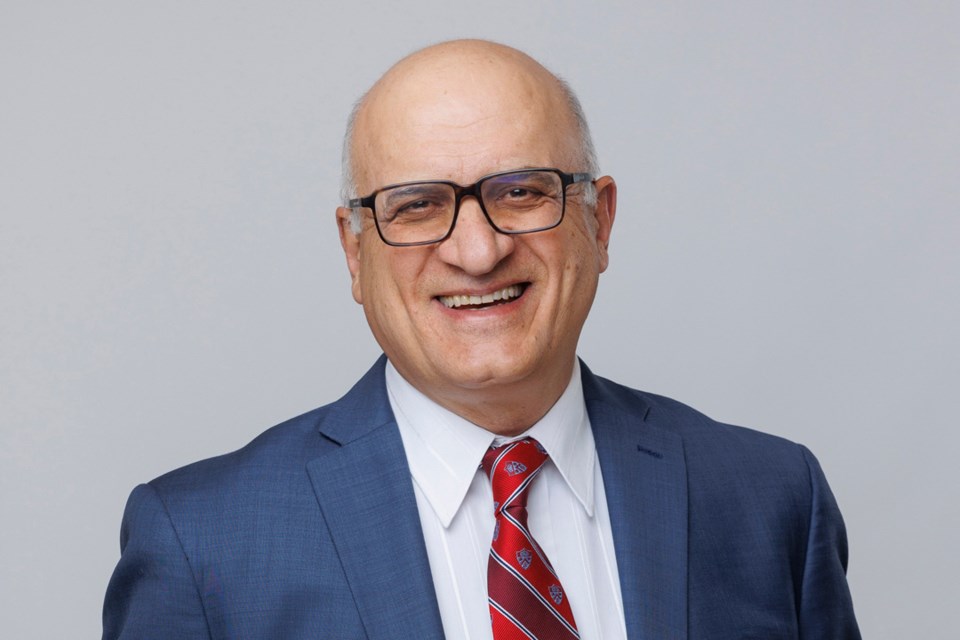SASKATOON — When he arrived in Canada, Dr. Haissam Haddad (MD) was told he had less than a one per cent chance of ever working in the country’s medical system.
Thirty-seven years later, the acclaimed cardiologist has been appointed as an Officer of the Order of Canada for his contributions to the medical field, notably within the Ottawa Heart Institute and University of Saskatchewan (USask).
“Dr. Haddad's compassionate and empathetic approach, combined with his expertise in medicine and education, greatly contributes to the betterment of society," said Dr. Preston Smith, dean of the USask College of Medicine.
"His remarkable leadership, determination, and humility have garnered immense respect and admiration from his colleagues, including myself. Dr. Haddad is a valuable asset to our college and the Saskatchewan Health Authority, and we deeply appreciate his exceptional leadership and experience."
Haddad is now the Provincial Head of the Department of Medicine at the USask College of Medicine and Provincial Head of Medicine for the Saskatchewan Health Authority, but the Syrian-born physician faced an uphill climb to get to this point. He came to Canada in the late 1980s after practising for three years as a family physician in his home country.
He had planned to join his brother to study cardiology in France, however, Haddad and his wife decided to go to Halifax, N.S. instead, where her family already lived.
When he arrived, he sought advice from an Arabic-speaking pathologist, who told him to open a pizza shop or a grocery store. It only fueled Haddad’s drive to succeed.
“This upset me, and it inspired me,” he said.
Haddad was fluent in Arabic and French but had to learn English before writing his Canadian licensing exam. Three years later, he passed it and went on to study general internal medicine at Dalhousie and a cardiology residency at the University of Alberta.
Haddad says he was drawn to cardiology because of how dynamic the field is. He says a cardiologist can “save someone’s life in five minutes” in intensive care, while also being able to give heart failure patients a new life through transplantation.
His interest in this area of cardiology soon led to a prolific research career, beginning after he became a faculty member in the Division of Cardiology at Dalhousie University.
“Soon after starting my faculty position, I realized there are too many clinical questions with no answers,” he said. “I thought I was obligated as a physician – obligated to my patients – to work hard to find answers.”
In addition to a long list of publications, his contributions to the field include writing heart transplantation and heart failure management guidelines with the Canadian Cardiovascular Society and serving as one of two Canadian contributors to the U.S.-based National Institutes of Health Heart Failure Network.
After working as a cardiologist in Halifax for four years, Haddad was recruited to lead the Ottawa Heart Institute’s Heart Failure and Transplant Programs, where he tripled the number of transplantations performed and created a successful heart failure fellowship program.
In 2016, Haddad was recruited to lead the Department of Medicine at USask. Since then, he’s enlisted more than 100 specialists to the department, doubling its size. He’s continued his research work through mentorship of the USask Cardiovascular Research Group, and bolstered faculty engagement and participation in research throughout the department. As provincial head of the department, he serves on the senior leadership of the College of Medicine and Saskatchewan Health Authority.
Haddad and his wife have also raised two children, both born in Canada. One is a geriatrician and the other, a cardiologist, is beginning advanced training in interventional cardiology and structural heart disease at Dalhousie University, in Halifax.
“Before this award, my biggest accomplishment was to convert having no hope to hope, and to become a successful person and a physician,” said Haddad. “When I learned more about this award, I see that it summarizes my 37 years in Canada.”
— Submitted by USask Media Relations




